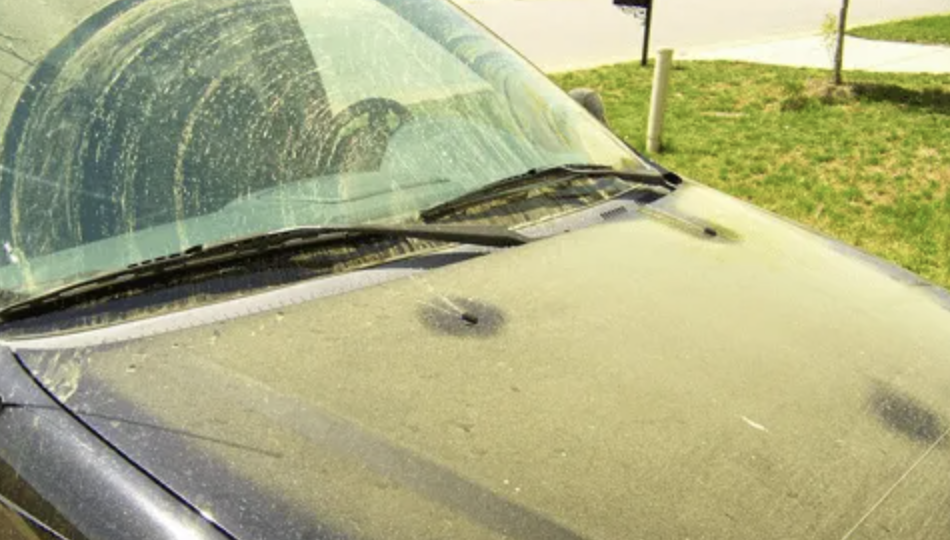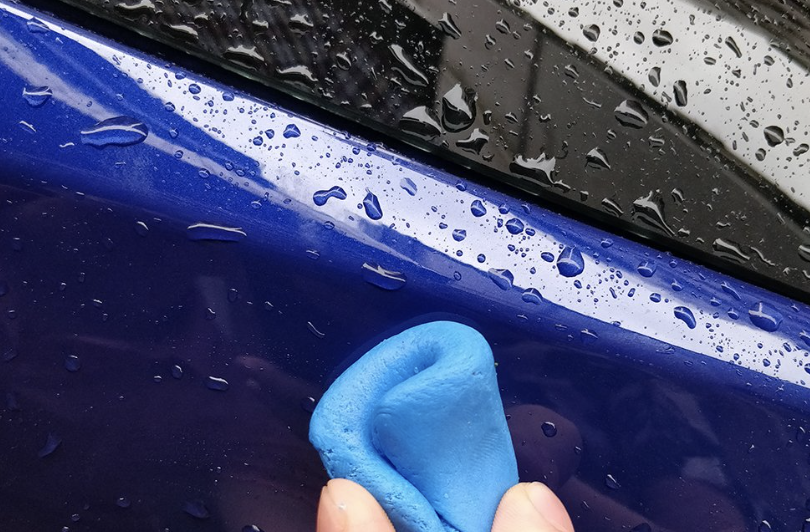Why Car Washes Aren’t Enough to Combat Pollen Damage
Pollen season in Orlando is relentless. Every year, trees, grasses, and weeds release massive amounts of pollen into the air, covering everything—including your car—in a fine yellow dust. Many car owners assume that a quick trip through the local drive-through car wash is enough to remove pollen, but that couldn’t be further from the truth. Regular car washes may rinse off some surface pollen, but they fail to eliminate it completely. Worse yet, they can contribute to long-term damage if pollen is left to accumulate on your vehicle.
If you want to protect your car’s paint, air quality, and overall longevity, professional detailing is the best solution. Let’s explore why drive-through car washes fall short and how a professional approach offers superior protection.
The Problem with Drive-Through Car Washes
Drive-through car washes are popular because they are quick, convenient, and relatively inexpensive. However, when it comes to pollen removal, they have significant shortcomings. Here’s why they don’t get the job done:
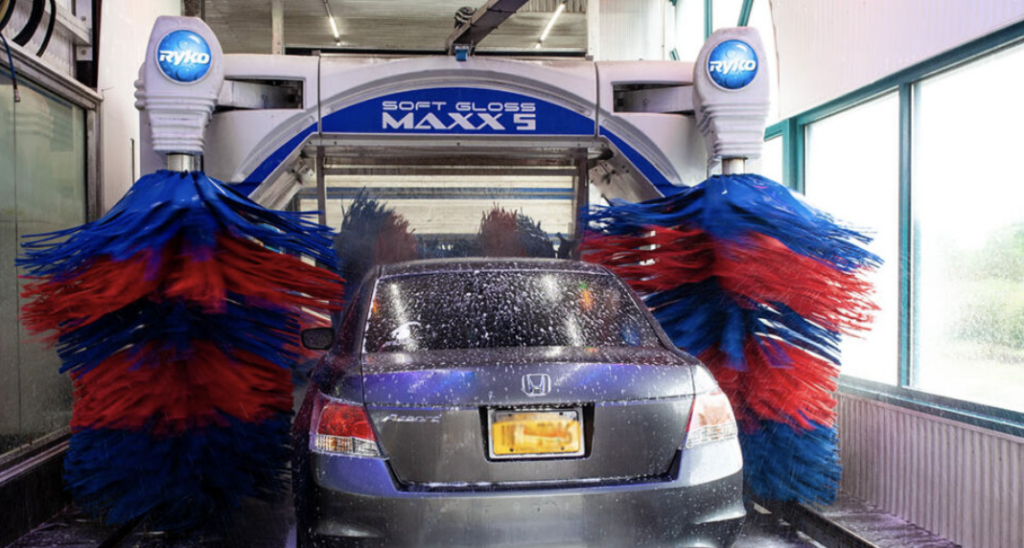
1. Surface-Level Cleaning Only
Automated car washes rely on high-pressure water jets and spinning brushes to remove dirt and grime. While this method works for loose dust and mud, it does not effectively remove pollen. Pollen particles are incredibly small and sticky, especially when mixed with moisture. They embed themselves in the tiny crevices of your car’s paint, window seals, and even inside air vents. A drive-through wash may rinse off visible pollen, but it won’t reach the pollen clinging to your car’s surface at a microscopic level.
2. Harsh Brushes Can Spread Pollen and Cause Scratches
Many drive-through car washes use stiff rotating brushes to scrub vehicles. Unfortunately, these brushes are often contaminated with dirt and debris from previous vehicles. Instead of fully removing pollen, they can actually grind it into the clear coat, creating micro-scratches that make your car’s surface more vulnerable to damage. Over time, these fine scratches can dull the paint and reduce your vehicle’s resale value.
3. Soap Residue and Incomplete Rinsing
Most drive-through car washes use generic, high-foaming soaps that are designed to strip away dirt quickly. However, these soaps don’t always break down pollen effectively. If soap residue remains on your vehicle, it can create a sticky surface that attracts even more pollen after you drive away. Additionally, automated rinsing systems are often inadequate, leaving behind traces of pollen and soap film.
4. No Protection Against Future Pollen Build-Up
Even if a drive-through car wash removes some pollen, it does nothing to prevent new pollen from settling on your car. Professional detailing services, on the other hand, include waxing and ceramic coating options that create a protective barrier, making it more difficult for pollen to stick to your car’s surface.
5. Neglecting Interior Pollen Accumulation
Pollen doesn’t just stick to the exterior of your car—it infiltrates the interior as well. Standard car washes do not include interior cleaning, which means pollen remains trapped in air vents, on dashboards, and in fabric seats. This can contribute to allergy symptoms and poor air quality inside your vehicle.
How Professional Detailing Offers Superior Protection
Unlike drive-through car washes, a professional mobile detailing is a meticulous process that ensures pollen is completely removed and that your vehicle remains protected. Here’s how professional detailing services outshine automated washes:
1. Thorough Hand Washing for a Deep Clean
Orlando Detailing uses high-quality, pH-balanced soaps and soft microfiber mitts to lift pollen off your car’s surface without causing scratches. A meticulous hand wash ensures that every crevice and surface is cleaned properly, including areas that automated washes miss.
2. Clay Bar Treatment to Remove Stubborn Pollen
For vehicles with heavy pollen buildup, a clay bar treatment is essential. A clay bar treatment safely pull embedded pollen and contaminants from the paint, leaving the surface completely smooth. This step is crucial because pollen can bond with the clear coat over time, leading to long-term damage.
3. Waxing and Ceramic Coating for Long-Term Protection
Unlike a basic car wash, professional detailing in Orlando includes protective treatments that help repel pollen in the future. A high-quality wax or ceramic coating creates a hydrophobic layer on your car’s paint, making it difficult for pollen to adhere. This means that even during peak pollen season, your vehicle stays cleaner for longer.
4. Deep Interior Cleaning to Eliminate Pollen Particles
Professional detailing goes beyond exterior cleaning—it ensures the inside of your car is pollen-free as well. Services include:
- Thorough vacuuming of carpets, seats, and air vents to remove pollen trapped in fabric and ventilation systems.
- Cleaning dashboards and interior surfaces with anti-static solutions that repel dust and pollen.
- Replacing cabin air filters to ensure clean airflow and reduce allergy symptoms while driving.
5. Regular Maintenance Plans for Ongoing Protection
Orlando has pollen season lasts for months, which means cleaning your car once isn’t enough. Orlando Detailing offers maintenance plans for every budget that keep your vehicle consistently protected. Routine hand washes, protective coatings, and interior cleanings ensure that pollen never has the chance to accumulate and cause damage.
The Risks of Ignoring Pollen Buildup
Some drivers assume that pollen is just a cosmetic issue, but it can cause serious damage if ignored. Here’s what happens when pollen is left to accumulate on your vehicle:
Paint Damage and Oxidation
Pollen is naturally acidic, which means it can eat away at your car’s clear coat if left untreated. Over time, this leads to dull paint, oxidation, and even permanent etching in extreme cases.
Clogged Air Filters and Poor Air Quality
Pollen particles infiltrate air vents and cabin filters, leading to poor air circulation inside your car. This can trigger allergies and create an unpleasant driving experience.
Reduced Visibility and Windshield Hazards
A thin layer of pollen on your windshield can reduce visibility, especially when mixed with rain. If not properly cleaned, pollen buildup can lead to streaking and glare, making driving more dangerous.
Deterioration of Rubber Seals and Trim
Pollen can accumulate in door seals and trim, where moisture and heat accelerate deterioration. This can lead to cracks, leaks, and costly repairs over time.
Conclusion: Choose Orlando Detailing Over Automated Washes
While a quick drive-through car wash may seem like a convenient way to remove pollen, it simply isn’t enough to fully protect your vehicle. Pollen is persistent, acidic, and damaging when left untreated. Automated washes fail to remove pollen from hard-to-reach areas, leave behind residues, and offer no long-term protection.
Professional detailing, on the other hand, provides a comprehensive solution. With meticulous hand washing, clay bar treatments, waxing, and interior deep cleaning, a professional detailer ensures that pollen is completely removed and prevented from causing further damage. Investing in professional detailing not only keeps your car looking pristine but also preserves its value and longevity.
Don’t let pollen ruin your vehicle—schedule a professional detailing service today and experience the difference in quality and protection.
Leave a Comment Cancel Comment
Book Orlando Mobile Detailing
Search
Latest Post
-
 The Cost of Neglect: Why Regular Aircraft Detailing Saves Money in the Long Run
February 14, 2025
The Cost of Neglect: Why Regular Aircraft Detailing Saves Money in the Long Run
February 14, 2025
-
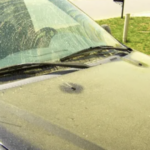 Why Car Washes Aren’t Enough to Combat Pollen Damage
February 13, 2025
Why Car Washes Aren’t Enough to Combat Pollen Damage
February 13, 2025
-
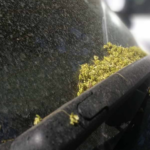 Orlando’s Pollen Problem: When Is It the Worst and How It Affects Your Car
February 13, 2025
Orlando’s Pollen Problem: When Is It the Worst and How It Affects Your Car
February 13, 2025
-
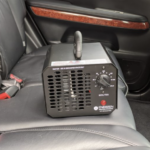 How Ozone Generators Eliminate Stubborn Car Odors in Orlando
February 12, 2025
How Ozone Generators Eliminate Stubborn Car Odors in Orlando
February 12, 2025
-
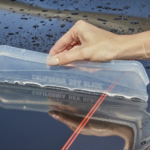 Why a Water Blade and Chamois Beat Towels Every Time!
February 9, 2025
Why a Water Blade and Chamois Beat Towels Every Time!
February 9, 2025

